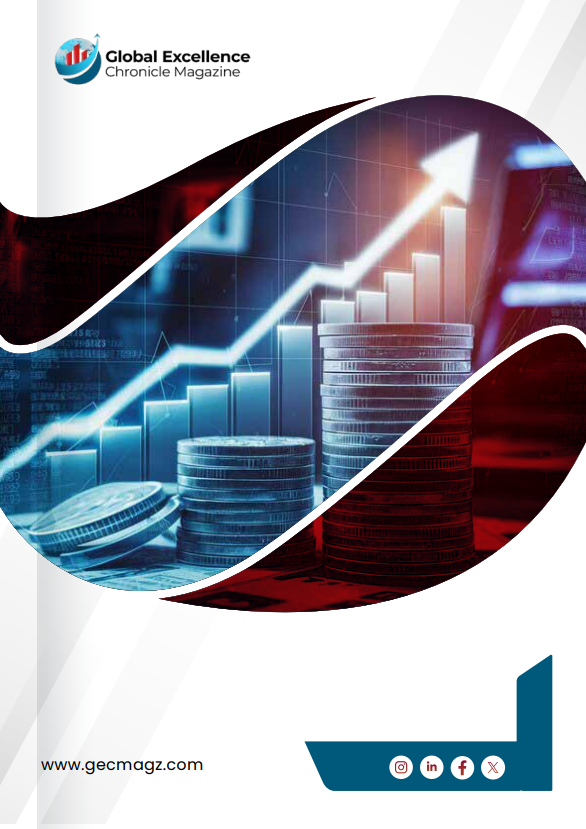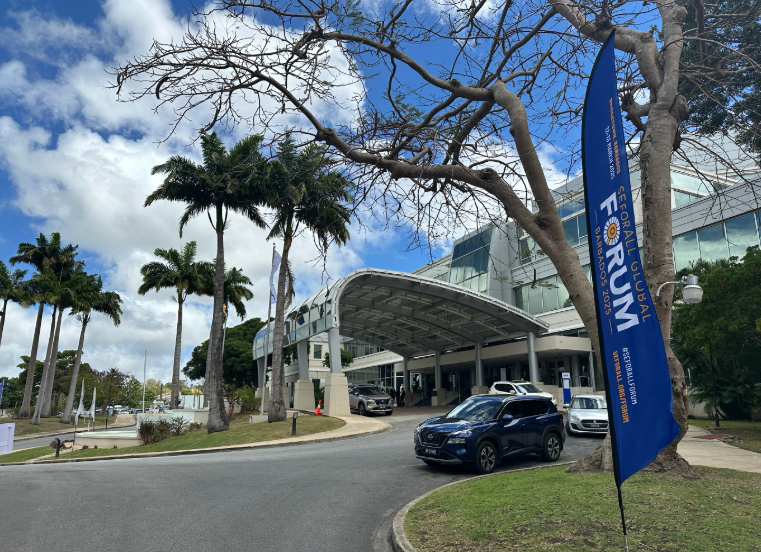BRIDGETOWN, Barbados — Under blue skies and palm trees, a stone’s throw from this island nation’s pristine beaches, leaders from across the Global South gathered last week to do some serious soul-searching.
The fast-changing world order, fueled by the United States’ pivot away from climate aid and clean energy, as well as Europe’s preoccupation with defense issues, have left poor countries and small island states anxious and unsure how much they can still count on their Western partners to help develop their industries and bring clean energy to hundreds of millions of people currently without electricity.
These challenges were top of mind for over 1,000 delegates from around the world last week at the biennial forum organized by the Vienna-based Sustainable Energy for All, an international organization working with the United Nations to help bring clean and modern energy to all people.
Cipher shares the key takeaways from this event and what the countries represented there are thinking about determining their own destinies in partnership with development banks and climate funds.
1. Accept reality
Barbados is the home of Prime Minister Mia Mottley, a champion for poorer countries and island states. She is known on the international stage for her impassioned speeches calling for a reform of the international financial system to allow the Global South to access capital faster and at better rates.
Mottley used a cricket metaphor on the first day of the conference that quickly became a mantra for the two-day gathering.
“You have to play on the pitch as it is, not as you would like it,” she told the audience, referring to the challenging geopolitical dynamics. “You don’t spend time crying over what could have been. We deal with the world as it is,” she added, speaking from a conference center located just a few hundred meters away from her residence.
Barbados Prime Minister Mia Mottley speaking on the first day of the Sustainable Energy for All Forum in Barbados in March 2025. Photo by Anca Gurzu.
It was a call to change gears from despair to empowerment despite big climate finance donors like the U.S. making a U-turn on their future contributions.
“I don’t think that … a few countries are going to hold the developing world hostage anymore,” said Damilola Ogunbiyi, the CEO of Sustainable Energy for All. “Is it going to be more difficult? Yes. But again, it’s a new way of working that we have to adapt to.”
2. Look within
Countries in the Global South need a mentality switch, officials repeatedly said throughout the conference.
“I’ve always said that as the developing world, all we have is ourselves,” Ogunbiyi said. Her response came following a question from Cipher on the tough geopolitical dynamics that are pushing development and climate action to the side.
Barbadian Energy Minister Lisa Cummins echoed these thoughts, adding that understanding how countries in the Global South can better cooperate with each other is crucial.
“Those things become even more meaningful in times of uncertainty,” she said answering the same question about geopolitical dynamics. “I think when you find yourself in spaces where you’re unsure about what is coming … that’s where you dig a little bit more deeply on the inside, you start to look within and you start to figure out what do I have that I can use and who are my partners that also can match where I am.”
3. It’s about the money
Despite the deep metaphors, by the end of the two-day forum in the small Caribbean nation, one very practical word reverberated across plenary rooms and coffee breaks and was woven into every topic: financing. Specifically, how to unlock more of it for the Global South.
Developing countries’ need for cash hasn’t changed, despite the rapidly changing world. But the U.S. decision to leave the 2015 Paris Climate Agreement (again) is creating a big hole in the climate finance bucket and has made this point even more acute.
The podcast corner of the Sustainable Energy for All Forum and delegates mingling in the background. Photo by Anca Gurzu, March 13, 2025.
“We have to redouble our efforts in spite of those who wish to put breaks on access to financing for ordinary people to be able to secure their future,” Mottley said.
While U.S. President Donald Trump’s name was rarely mentioned publicly at the event, his decision to slash development aid around the world, and the resulting consequences, added to delegates’ concerns.
Mottley said developing countries should consider embracing Europe’s use of financial guarantees to unlock capital. These guarantees work as a pledge by a lending institution that it will step in and provide compensation should a business transaction between two parties not go through and a loan cannot be paid back. The mechanism is growing in popularity amid increasingly tight budgets, as Cipher previously wrote.
The forum ended with a commitment from various partners to mobilize nearly $1 billion through various funds to scale energy access.
4. Be more efficient
Energy efficiency is never the sexiest topic in town, but amid the wider uncertainties facing development and climate goals, policymakers from lower-income nations are starting to pay more attention to how countries can use energy more effectively.
Solutions include more efficient appliances and cooling systems and even setting up systems for the economical and sustainable processing of critical minerals, which African countries are keen to do.
Anca Gurzu (left) moderates a panel on energy efficiency at the Sustainable Energy for All Forum in Barbados, March 2025. The other panelists are (from left to right): Marit Kitaw, Interim Director of the African Minerals Development Center; Jo Cops the president the International Electrotechnical Commission; Jennifer Layke, global director for energy at the World Resources Institute; Emmanuel Aziebor, senior director for Africa at CLASP, an organization focused on efficient appliances. Photo credit: Rosa Garcia.
The world is currently wasting $4.6 trillion a year, or 5% of global gross domestic product, due to an inefficient energy system, Jon Creyts, CEO of RMI, a non-profit focused on the energy transition, said during a presentation. These energy losses occur along the way from the moment oil, for example, is extracted until it reaches the pump.
“Imagine you go to the cafe in the morning, and you pick up your cup of coffee, and before you even get a chance to take a sip out of it, two-thirds of it has drained out of a leaky cup,” he said. “Are you comfortable with that?”
5. So, what’s the plan?
The success of the forum will be measured by how well words translate into action later this year.
The biggest litmus test will be the upcoming United Nations climate summit, known as COP30, in Brazil in November. By then, governments are expected to present their updated national determined contributions (NDCs), which outline countries’ plans to green their economies and cut emissions.
Delegates at the Sustainable Energy for All Forum at the Lloyd Erskine Sandiford Centre in Barbados watch vibrant live music from artists performing on steelpans, a musical instrument popular across the island. Photo by Anca Gurzu, March 2025.
The deadline to submit the updated plans, a key part of the Paris climate agreement, was in February; only a few countries submitted on time.
Developing nations need to sketch out plans that make them attractive and interesting to investors, said André Corrêa do Lago, COP30 president-designate, at the forum.
Despite the heavy conversations, the warm, welcoming culture of Barbadians was also a key part of the conference. Mottley hosted a reception at her residence at the end of the two-day forum, which saw delegates welcomed with live traditional music and local food, while surrounded by beautiful gardens.
Source: ciphernews.com



